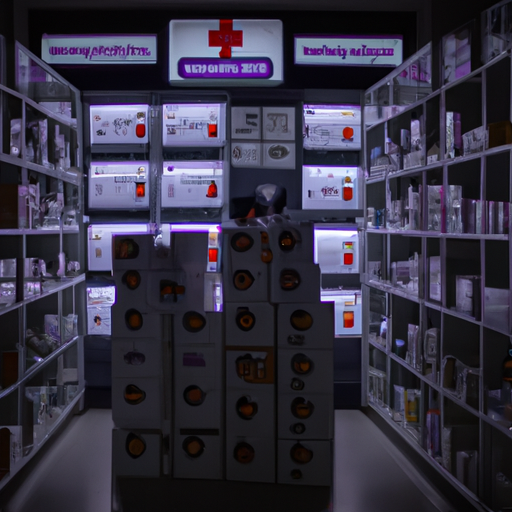The Ongoing Opioid Crisis in Mississauga: Exploring the Efficacy of New Safes in Pharmacies
The opioid crisis is a pressing issue in the Canadian city of Mississauga, and across the nation, it continues to reach new heights of concern. This alarming upswing in opioid addiction and crime related to it, demands innovative solutions to protect our communities and support those suffering.
Recently, some pharmacies in the city have begun implementing new safes meant to deter theft of opioids. However, as reported in Insauga, these safes may not offer the fool-proof solution that is necessary.
The Drawbacks of New Safes
The idea behind the new safes is to secure opioids, making it harder for potential robbers to acquire them. However, the effectiveness of these safes as a deterrent is debatable. According to the article, one pharmacist from Mississauga voiced concerns about potential thieves being undeterred by the safes if they are desperate enough.
Desperation is a significant component in this opioid crisis. Individuals suffering from opioid addiction often face homelessness, isolation, and desperation, leading some to resort to crime to feed their addiction. Safes may be a minor obstacle for them, and the risk of potential punishment often doesn’t outweigh the forces driving their actions.
Efforts such as these safes might mitigate a small amount of the criminal activity associated with the opioid crisis, but they are not the ultimate answer. We need strategies that address the root problems of addiction and provide support and resources for those affected.
Efforts to Combat the Crisis
There is no single solution to the opioid crisis, but there have been initiatives aimed at decreasing its impact. The multifaceted nature of the problem requires a comprehensive, community-driven approach. Some of these efforts include:
- Opioid class-action lawsuits: These suits hold pharmaceutical companies responsible for the role they have played in promoting and distributing opioids. The hope is that by holding these corporations accountable, pharmaceutical practices surrounding opioids will change.
- Naloxone kits: Naloxone is a medication that can quickly reverse the effects of an opioid overdose. The widespread distribution of Naloxone kits and training on how to administer them is crucial to saving lives.
- Substance abuse treatment programs: Proactive efforts to provide accessible and effective treatment programs are vital. We must ensure that individuals struggling with opioid addiction have adequate support and resources.
A Call to Action: Addressing Our Community’s Crisis
While the newer, more sophisticated safes can play a part in tackling the opioid crisis, it is critical to remember that they are not an end-all solution. To truly make an impact on the crisis, we must go beyond merely safeguarding drugs and addressing the symptoms of the disorder. Our communities should instead focus on preventative measures and support systems that address the root cause of the crisis: the addiction itself.
The opioid crisis is not merely a health issue; it is a community tragedy that affects every corner of society. Increased crime, homelessness, and adverse health effects are just a few of the repercussions. As civic and community leaders, we must come together to enhance measures to combat this crisis proactively, comprehensively, and with the compassion that our fellow citizens so sorely need.
Conclusion
In conclusion, the opioid crisis requires community-based strategies that go beyond just securing the drugs. While safe installations in pharmacies may deter some criminals, they fail to address the central issue – opioid addiction. Our focus should lean more on measures like opioid class-action lawsuits, naloxone distribution, and the development of more effective substance abuse programs. In addressing, understanding, and treating addiction, we can mitigate its effects on crime and homelessness and pave the way for healthier communities.
